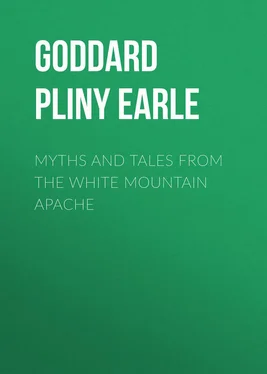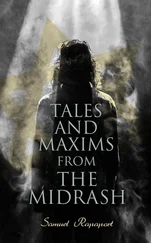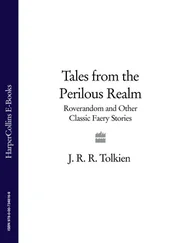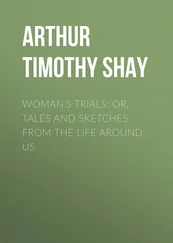Pliny Goddard - Myths and Tales from the White Mountain Apache
Здесь есть возможность читать онлайн «Pliny Goddard - Myths and Tales from the White Mountain Apache» — ознакомительный отрывок электронной книги совершенно бесплатно, а после прочтения отрывка купить полную версию. В некоторых случаях можно слушать аудио, скачать через торрент в формате fb2 и присутствует краткое содержание. Жанр: foreign_antique, foreign_prose, на английском языке. Описание произведения, (предисловие) а так же отзывы посетителей доступны на портале библиотеки ЛибКат.
- Название:Myths and Tales from the White Mountain Apache
- Автор:
- Жанр:
- Год:неизвестен
- ISBN:нет данных
- Рейтинг книги:4 / 5. Голосов: 1
-
Избранное:Добавить в избранное
- Отзывы:
-
Ваша оценка:
- 80
- 1
- 2
- 3
- 4
- 5
Myths and Tales from the White Mountain Apache: краткое содержание, описание и аннотация
Предлагаем к чтению аннотацию, описание, краткое содержание или предисловие (зависит от того, что написал сам автор книги «Myths and Tales from the White Mountain Apache»). Если вы не нашли необходимую информацию о книге — напишите в комментариях, мы постараемся отыскать её.
Myths and Tales from the White Mountain Apache — читать онлайн ознакомительный отрывок
Ниже представлен текст книги, разбитый по страницам. Система сохранения места последней прочитанной страницы, позволяет с удобством читать онлайн бесплатно книгу «Myths and Tales from the White Mountain Apache», без необходимости каждый раз заново искать на чём Вы остановились. Поставьте закладку, и сможете в любой момент перейти на страницу, на которой закончили чтение.
Интервал:
Закладка:
The Sun got up and reached inside to a shelf from which he took up an iron knife like a sword. Turning around he took up a bow and arrows having iron heads. There were two of the arrows. “I give these to you,” he said. “You are giving us these! Our mother did not know about them. Why does she not give us something?” the boys said. The Sun's wife said she would speak a few words to them. “You shall be my nephews. Your mother shall be my sister. She shall be like me. Because of this I have treated you well. She shall be the same as I. I become an old woman and at other times I am as if I were two years old. She shall be the same way. 15 15 The two wives of the Sun are often mentioned. The Navajo account has Esdzanadlehi go to the west where the sun visits her daily. Here and there, especially in the songs, the Moon is coupled with the Sun, and is feminine in sex. That the Moon and the Earth should both be called the “Woman who renews herself” is interesting. These conceptions are generally vague and implied rather than expressed.
You shall tell her this before the Sun travels far. I am the one telling you; he did not tell you. I will name my sister. Your father will give you names.” The Sun picked something up and was still holding it. “Wait, I will tell you something and after that he will give you a name. I name her Nigostsanbikayo. 16 16 Earth, literally “There on the earth.”
Every one will call her that. She will come to me. You, too, will come to me. I give a name to your mother. She will be called Ests'unnadlehi and she will help you. I make a name for her, Ests'unnadlehi, and with that she will help you. When she has children again they will be two girls. These girls will belong to the people for there will be people. 17 17 The narrator said those mentioned at the beginning of the narrative were not real people but just like shadows. The other versions have only the one family existing at this time.
She will help them. I, too, will help them when they come to me. He, too, will help his children. That is why I am telling you and you must remember it well. I have finished. Your father will tell you about the objects he is about to give you.”
The Sun gave the elder boy a weapon saying, “This will be called a 'blue sword.' You will use it against the monsters on the earth. Because of that I gave you the name, Naiyenezgani.” He gave the weapon to him saying, “That is all for you.” Addressing the younger, he said, “Now I give this to you, Tobatc'istcini. You will use this which I give you against those who prey upon people. You are to help each other. I shall be near you watching you. Whatever you do will be known to me. It will be well if you kill these evil ones. The people will live everywhere.” He gave him the bow with the injunction that he should draw the bow three times without releasing the arrow and then he should shoot the dangerous beings and they would fly apart. Having said this, he proposed they should eat something. The Sun's wife was still sitting in her accustomed seat. The men went to the table, well loaded with food prepared by some unknown agency, and began to eat. The Sun's wife gave the elder one a spotted belt with a yellow fringe hanging from its border.
When they had finished the meal, the Sun said he did not know how the visitors were to return. They went where the horses stood and the Sun said, “Children, this stallion will go well in the lead. Now mount the horses.” He held the stirrup and saddle horn and told the boys to get on. They did so and rode away from the Sun's house where towards the east a post stands up with white hair 18 18 The reference may be to moss, especially as rain falling on it is mentioned below.
which reaches to the ground and turns up again. The rain falls on it. They rode their horses around this post four times and came back where they were standing before, as the Sun directed them to do.
When they had finished, the Sun's wife came up to them and told her husband to count for his sons the two saddle blankets, two halters, two bridles, two ropes, and two saddles. The Sun told them to start home; that he was well acquainted with them. He charged them to take good care of the saddle blankets and directed that the gray horse should go in the lead because he knew the trail to the place midway between the earth and the sky. From that point the sorrel horse was to lead because that one knew the way from there on. When they returned where their mother lived he told them to stake the horses out for four nights. The sorrel was to be staked toward the east and the gray to the west. Having ridden the horses among the people they were to unsaddle them in some good place. A white saddle blanket was to be placed toward the east, a black one to the south, a yellow one to the west, and a blue one to the north. 19 19 The narrator said it was true that horses would not pass a blanket so placed in a narrow canyon. This order of the colors and their assignment varies from the one more generally found of black for the east and white for the south. P. 7, and Matthews, 215.
The bridles, halters, ropes, and saddles were to be brought to the camp. He charged them to keep in mind what he was telling, for he was telling them this that they might be good men. He divided his property between his boys. He told them after the horses had been running loose four days to go to them early in the morning. This might be in any good place where canyons meet, making a flat. When they came to them they were to hold out their hands, palms upward, towards the horses. They were to catch the horses while they were licking their hands. They were to consider what he told them and when they should go for the horses after four days, the four canyons coming together would be full of horses. When their horses had been caught by holding out their hands, the saddle blankets, one on the other, were to be put on them and the horses were to be saddled. They were to ride the horses all day until sunset when they were to be turned out again. Having turned them out, they were told they might go the next day to see what was happening. Having finished his speech he dismissed the boys.
They went with the Sun until they came to the top of the ridge, where they stopped. The Sun felt the horses all over. He felt of their legs, their feet, their faces, their ears, their manes, their backs, petting them. “Goodbye, my horses,” he said, “travel well for my boys down to the earth. There is food for you on the earth the same as here.” He addressed the gray horse, telling him to be the leader on the way toward the earth since he knew the way. He told the boys not to look at the horses' feet nor to look behind them, but to keep their eyes fixed on the tips of their ears.
They started; before they knew it the horses had changed places, and the sorrel was leading. They thought the earth was far off but they soon found the horses were trotting along on the earth. Now the horses were running with them toward their camp. They rode up slowly where the people were walking about. They rode to the camp side by side, and the people all ran out to look at them. Their mother was standing outside watching them and they rode up one on each side of her. “Mother, Ests'unnadlehi, unsaddle our horses,” they said to her.
The people all came up to them. The woman, laughing, ran her hand over the horses saying, “Your father gave you large horses.” When the people had all come there, the boys told them to call their mother Ests'unnadlehi. They all called her by that name. The older boy said they were to call him Naiyenezgani. The younger one said they were to call him Tobatc'istcini. 20 20 This announcing of names is probably to be explained as ceremonial. Ordinarily, it is improper, probably because immodest to call one's own name.
They addressed them saying, “When we were here before you used to laugh at us because we were poor. We used to walk because we were poor. We have visited our father where he lives. The Sun's wife named our mother. Call me Naiyenezgani. That one was given the name, Tobatc'istcini. These will be our names and be careful to call them correctly. Do not come near these horses. We will stake one out here and the other one there. They will remain tied out four days. You may go.”
Интервал:
Закладка:
Похожие книги на «Myths and Tales from the White Mountain Apache»
Представляем Вашему вниманию похожие книги на «Myths and Tales from the White Mountain Apache» списком для выбора. Мы отобрали схожую по названию и смыслу литературу в надежде предоставить читателям больше вариантов отыскать новые, интересные, ещё непрочитанные произведения.
Обсуждение, отзывы о книге «Myths and Tales from the White Mountain Apache» и просто собственные мнения читателей. Оставьте ваши комментарии, напишите, что Вы думаете о произведении, его смысле или главных героях. Укажите что конкретно понравилось, а что нет, и почему Вы так считаете.












